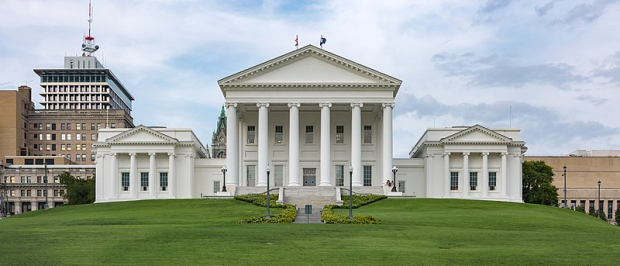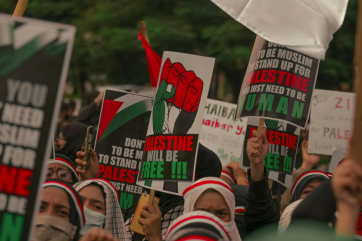George Mason and VCU's DEI Course Syllabi Under Virginia Officials' Scrutiny Amid GOP Investigation
By Joy LiwanagRepublican politicians across the United States have intensified their scrutiny of diversity, equity, and inclusion (DEI) initiatives, often enacting laws to restrict or defund related programs. In Virginia, Governor Glenn Youngkin, who campaigned against the teaching of critical race theory, has directed his administration's focus towards DEI efforts in higher education.

(Photo : WIKIMEDIA COMMONS / Martin Kraft)
Review of DEI Courses
Youngkin's education secretary's office has requested to review syllabi from upcoming diversity-themed courses at two public universities: George Mason University and Virginia Commonwealth University (VCU). This move has raised concerns among faculty and students about potential violations of academic freedom and shared governance.
At George Mason, where the implementation of a "Just Societies" mandate was underway, some members of the Board of Visitors have expressed reservations. Similarly, VCU's plan to introduce a "Racial Literacy" requirement is now uncertain in light of the scrutiny from state officials.
Faculty members at both universities have meticulously crafted plans over several years to introduce new requirements for incoming undergraduate students, aiming for implementation in the upcoming fall semester. However, Youngkin's request for syllabi review has cast doubt on the timeline and implementation of these initiatives.
READ ALSO: Virginia Ban of Legacy Preferences Paves Way for Fair Admissions
Debate and Concerns
The review of DEI course syllabi has reignited debates surrounding the role of diversity initiatives in education and the extent of government oversight. Critics argue that such scrutiny could undermine academic freedom and discourage open dialogue on issues of race and social justice.
However, supporters of the review assert that it is essential to ensure transparency and accountability in the use of taxpayer funds for higher education. They argue that DEI programs should be subject to scrutiny like any other academic endeavor and that the review process will help identify potential biases or ideological influences in course materials.
Meanwhile, faculty members and students worry that the review may be a prelude to broader interference in academic affairs by state officials. The possibility of political pressure influencing curriculum decisions has raised concerns about the independence of universities and the integrity of academic standards.
Implications for Higher Education
As the debate continues, the fate of DEI initiatives in Virginia's public universities remains uncertain. The outcome of the review process may have significant implications for the future of diversity education and academic freedom in higher education institutions.
Moreover, the scrutiny faced by George Mason University and VCU reflects a broader trend of political polarization and ideological clashes in higher education. The role of state governments in shaping university policies and curriculum is increasingly under scrutiny, with implications for institutional autonomy and intellectual diversity.
Ultimately, the outcome of Virginia's review of DEI course syllabi will not only impact the two universities involved but may also set a precedent for how similar initiatives are treated in other states. The balance between academic freedom, government oversight, and diversity education remains a contentious issue that will continue to shape the future of higher education.
RELATED ARTICLE: Supreme Court Decision on Virginia Magnet School Admissions Sets Precedent for Diverse Admissions in Elite Schools








